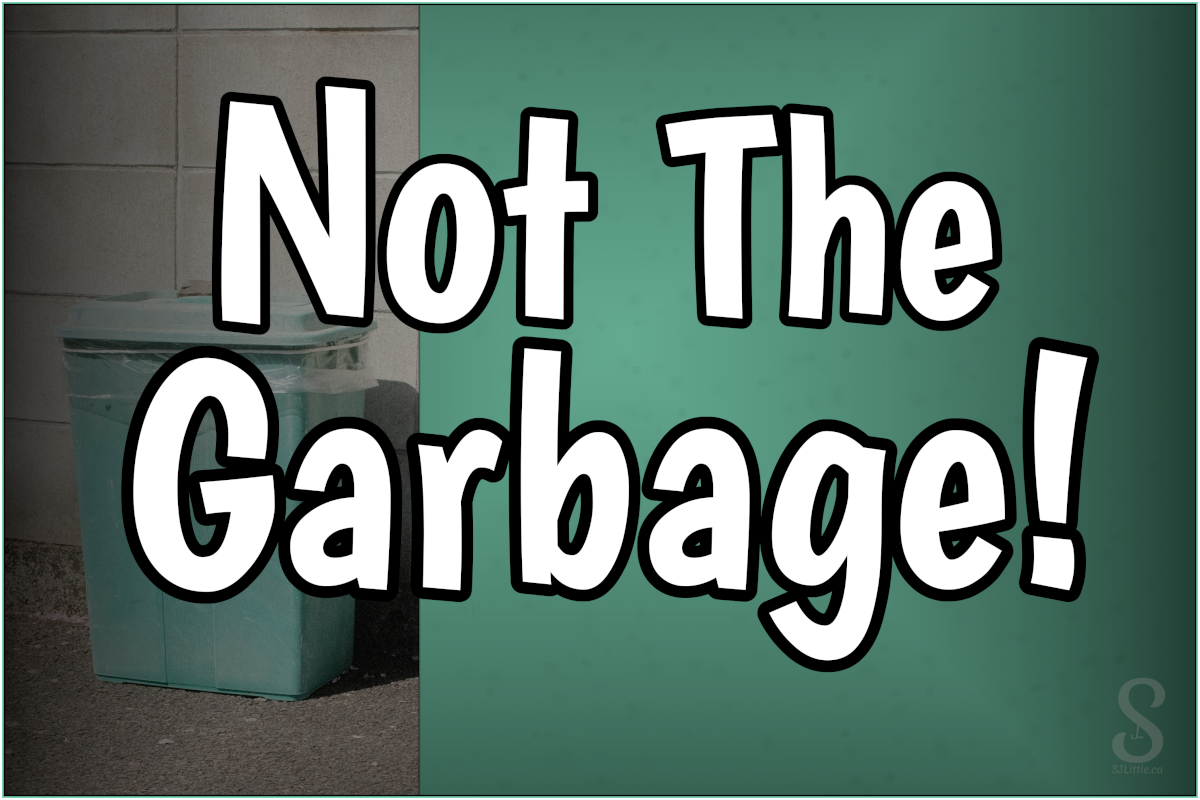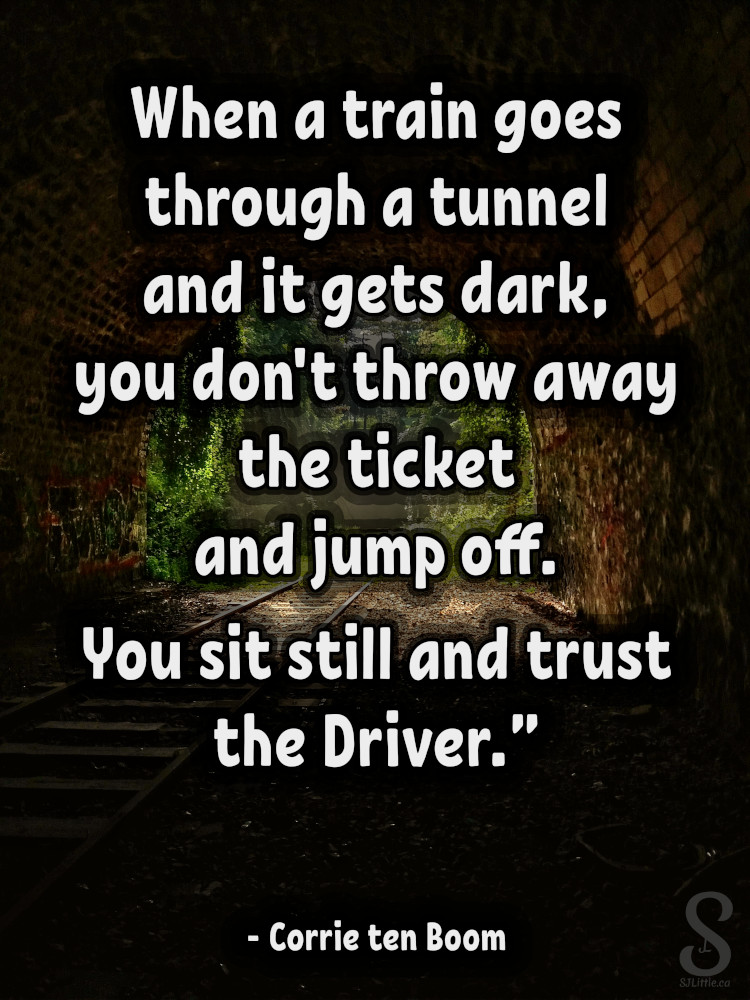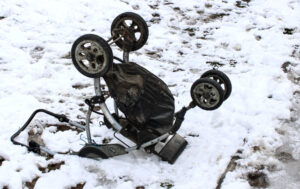
I placed the loaf of bread in the fridge and returned to the table to clear the rest of the breakfast items. Happy chatter reached my ears from where my older child played in the other room.
I glanced at my baby as he crawled around the kitchen floor exploring the toys left out for that very purpose.
Opening the dishwasher, I quickly put the dishes and cutlery in.
My baby made a beeline for the dishwasher.
“You’re getting faster,” I said, “but I’m all done with the dishwasher already.”
He fussed when I closed it before he could climb in.
Crouching beside him, I drove a car back and forth. “Vroom… Vroom…”
It only took a moment before he was reaching for the car.
“Yes, you can have the car. I need to finish clearing the table.” Fetching the dishcloth, I returned to the table and began wiping it.
I heard a thump.
Looking over, I observed my baby standing against the under-the-sink cupboard, pulling at its handle.
Pulling the door open, he peeked inside. Intrigued, he pulled it open further then dropped to his hands and knees to investigate.
I stepped around the table to wipe the far side.
He reached for the dustpan and broom I kept in the cupboard.
I spoke lightly, “You can look at that, just don’t suck on it please.”
His interest didn’t last long. Setting the dustpan aside, he looked up at the garbage can. He reached for the fresh bag my husband had put in the can.
“No, that’s not for you,” I spoke from the opposite side of the table.
My baby couldn’t quite reach the bag from where he sat. He shifted closer and reached again.
Disregarding the dishcloth, I hurried to his side.
“No,” I stated firmly, pulling his hand away from the garbage.
He looked at me, then reached for the bag again.
“No,” I said again.
He reached for it another time.
“No. That’s the garbage. That’s not for you. Here, you can hold the dustpan.” I tapped the dustpan loudly.
Yet again he reached for the garbage.
This time, I pulled him away from the garbage and closed the cupboard. “No. The garbage is not for you. Find something else to play with.”
He fussed.
I rolled a ball towards him, but he barely noticed. He was too busy heading back for the cupboard and pulling himself up against it.
I held the cupboard shut as he tugged on the handles.
His fussing turned to crying.
I scooped him up.
“Silly boy. Garbage is not good for you. Come, let’s find something better for you.” I carried him to the living room in search of a more engaging toy.
It was only later, after more run-ins of a similar nature, that I noticed the allegory hidden in these moments.
I love my son. I want what is best for him. When he wants to play with garbage, I say “no.”
The same is true of God. Our Heavenly Father is a loving God. He loves us so much that when we want to play with garbage, He says “no.”
As the parent of a very busy baby, I am considering putting locks on that cupboard to prevent him from opening it.
God, however, gives us the freedom to choose to comply with His “no.”
In my day-to-day life, what does this mean?
First off, in His Word, God has given me many laws and guidelines to live by. I’m sure you can name several of them.
“Do not murder.
Do not commit adultery.
Do not steal.” (Deuteronomy 5:17-19 CSB)
I could go on.
Why does God give me these laws? Because He knows they will keep me away from garbage.
Garbage is not good for me.
Beyond that, God sometimes replies to my prayer requests regarding specific situations or desires with “no.”
So often it is hard to understand why He says no when it is something I long for.
In the story I shared, my baby had absolutely no comprehension that the garbage can was not good for him. He got frustrated when I pulled him away from it. He cried.
Sometimes I must simply trust that God sees the bigger picture. He knows what the future holds. He knows what is best.
Yet it can be so hard to trust when the “no” makes no sense to me. I may feel frustrated, disappointed, and discouraged. I may cry. I need to take these feelings straight to God as the Psalmists so often did.
As I take these emotions to God, He will help me trust Him when He says:
“‘For My thoughts are not your thoughts,
and your ways are not My ways.’
This is the Lord’s declaration.
‘For as heaven is higher than earth,
so My ways are higher than your ways,
and My thoughts than your thoughts.'” (Isaiah 55:8-9 CSB)
Today, may I abide by the rules and guidelines God has laid out in His Word. Beyond that, when God says, “no,” may I trust that He knows what is best, even when I don’t understand.







